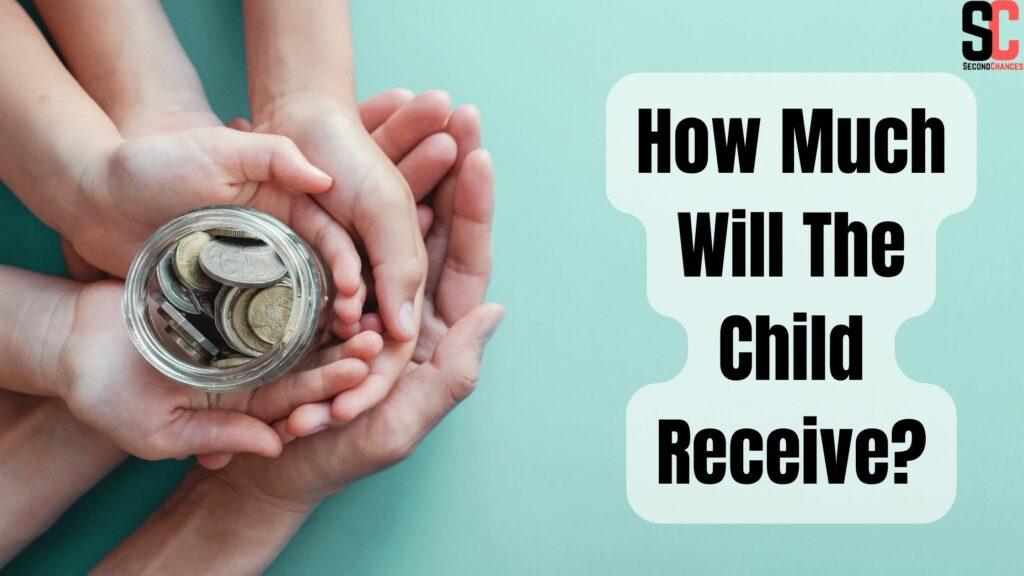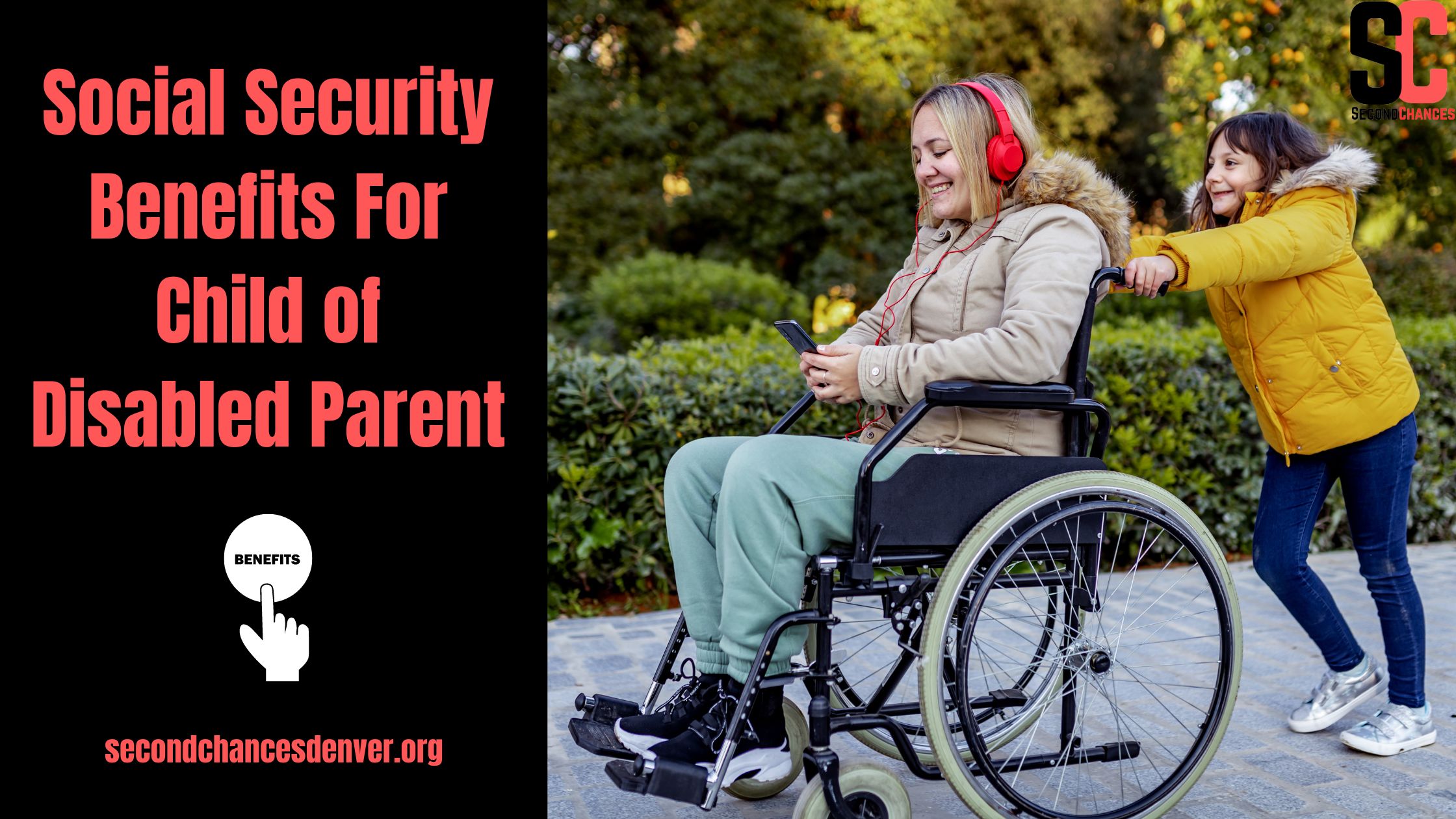When a parent becomes disabled, it can be tough on the whole family, especially the kids. Thankfully, Social Security Benefits For Child of Disabled Parent can help.
The loss of a job or the inability to work due to a disability is difficult enough for most people. However, if a parent has a disability, a lack of a job can threaten both their own and their children’s quality of life.
The Social Security Administration provides disability benefits to the dependents of disabled workers, including their children. Parents who have disabilities and are raising a family can take advantage of Social Security Benefits For Child of Disabled Parent. The eligibility requirements and other restrictions that affect Social Security Benefits For Child of Disabled Parent should first be understood.
So, Let’s dive into it.
Table of Contents
What Is Social Security Disability?
A Social Security benefit can supplement a disabled worker’s income so they can pay for basic needs like food, clothing, and electricity. If you suffer a serious injury or illness, you may qualify for SSDI (Social Security Disability Insurance).
The state of New York pays Social Security Disability Insurance benefits to 504,000 disabled and blind employees. The SSDI program can provide benefits to your family if a serious illness or disability prevents you from working and supporting your children.
Can A Child Receive Social Security Benefits?

Do children of disabled parents qualify for benefits? The answer is yes, but there are some limitations.
If one or both parents cannot work, a child may be entitled to a portion of the benefits. These benefits are known as dependent or auxiliary benefits. Additionally, the parents must have accumulated enough work credits to qualify for SSDI. In many cases, a child will receive 50% of a parent’s total disability allowance.
Eligibility Criteria To Qualify For Social Security Benefits For Child of Disabled Parent
There are many people who wonder if children with disabled parents can receive cash benefits from SSDI. Children who are biological, adopted, or stepchildren can receive Social Security benefits from their parents. It is also possible to extend this privilege to grandchildren and stepgrandchildren in certain cases.
A child who is under 18 or 19 and enrolled full-time in high school can receive Social Security benefits from their parents. However, SSI benefits will no longer be available to them once they turn 18 unless they have a personal disability.
The following are the eligibility criteria for disabled parents’ children to receive social security benefits.
- A disability certification is given to parents upon retirement
- The children are not married
- Those children are 18 or 19 years old and attend full-time school.
- The child’s disabilities began at the age of 18, i.e., before they turned 22.
Required Documents For Social Security Benefits For Child of Disabled Parent

Several people who have gone through the procedure recommend scheduling appointments to avoid delays. A Social Security Disability lawyer can work on your behalf to communicate with insurance agents, representatives, and other parties. Additionally, securing financial stability can be aided by exploring housing grants for disabled females, which provide essential support for accessible and affordable living arrangements.
In order to apply for Social Security-dependent benefits, you must submit the following documents.
- Childbirth certificates
- A child’s Social Security number
- A copy of the child’s citizenship or lawful residency documents
- A copy of the parent’s marriage certificate or adoption records
- Work records, such as a W2, if the child earns income from other sources.
- In general, the Social Security Administration accepts copies of relevant documents such as W2 forms and medical records. The original birth certificate and identification document must also be provided.
Applying For Social Security Benefits For Child of Disabled Parent
You will need a number of documents when you apply for Social Security Benefits For Child of Disabled Parent. The records verify parental status, identity, and other information essential to the eligibility process. You will need to provide the SSA with the following information:
- Children’s birth certificates
- Proof of citizenship or lawful residency of the child
- SSN (Social Security Number) of the child
- Records of parents’ marriages or adoptions
- In case the child earns income, provide a copy of their W-2
- The Social Security Administration usually accepts copies of some documents, such as medical records and W-2 forms. Nevertheless, you will need to submit original birth certificates and identification to be considered.
Types of Social Security Benefits For Child of Disabled Parent

A child of a disabled parent can collect primarily two types of benefits, including:
Auxiliary Benefits
Auxiliary benefits for disabled children are awarded to financially dependent children whose guardians or parents receive SSDI benefits. Dependents can receive disability benefits regardless of whether they are disabled; they receive benefits based on their parents’ disability records.
Eligibility Criteria
A child receiving auxiliary benefits should be related to the SSDI recipient in one of the following ways.
- A biological child (parents’ marital status is not important, but maternity should be established to receive auxiliary SSA benefits)
- Adopting a child
- The status of a grandchild or stepgrandchild. There may be no living guardians or parents in the child’s life in this case.
- Auxiliary benefits are not available to children of disabled parents collecting SSI since the eligible parent or guardian remains capable of supporting their children. Additionally, if the child marries before turning 18, his or her SSA benefits will end.
Personal Disability
A child of a disabled parent may be able to receive personal benefits from the Social Security Administration. The essential eligibility criteria for SSI disability benefits include being disabled or blind.
Eligibility Criteria
- The Social Security Administration can provide disability benefits to persons under 18 years of age.
- The eligibility criteria for SSI benefits are based on work records. A child’s SSA benefits are determined based on their parent’s work record.
- As long as no SSI assistance is received, the guardian’s income and resources are considered viable income sources.
- If a parent receives SSI benefits, the child may also qualify for benefits, provided that the parent has a financial need.
- To be eligible, you must meet the criteria for child disability impairments determined by the Social Security Administration. You will be reevaluated once you reach 18 under SSA adult impairment regulations. As long as the impairment meets the standards or definition for the condition, children with visual impairment will be eligible for SSI benefits.
Do Stepchildren And Grandchildren Qualify For SSDI As Auxiliary Beneficiaries?
The children adopted children, and stepchildren of disabled adults receiving SSDI are also eligible for SSDI benefits.
The following conditions are required for a grandparent to qualify their grandchild for auxiliary SSDI benefits:
- There are no parents left for the grandchild, or they are disabled.
- A grandchild lived with a grandparent before turning 18.
- The grandchild had received at least half of the grandparent’s financial support in the year before SSDI was available.
- A grandchild who is less than a year old must have lived with the grandparent from birth.
- Grandparents who legally adopt their grandchildren will follow the SSDI eligibility requirements for children instead of grandchildren.
What Can A Disabled Child Do If The Social Security Administration Denies Their Application For Benefits?

If you are concerned your child may not qualify or do not have all of the necessary documentation, a lawyer can assist you with this process. The answer to some questions may prevent you from acting as the beneficiary of your child. If you are a felon or have a history of criminal offenses, the Social Security Administration may deny your application.
Understanding The Family Maximum Benefit
There are some factors that may impact the amount of benefits your child is eligible to receive.
If your and your child’s monthly SSDI payments exceed the predetermined allowance, the SSA enforces a maximum family benefit cap (MFB). Although MFBs vary from family to family, many recipients are unable to earn more than 150% of their disabled parent’s SSDI payments.
Your total MFB will not be affected by any disability payments you make to an ex-spouse.
How Much Will The Child Receive?

A disabled child’s aid will depend on the amount that he or she receives. There is no limit to how much a disabled person’s child can receive from SSDI. There are a few factors that determine it.
The family benefit limit is also set. There is typically a cap of 150% to 180% of a disabled person’s SSDI benefit for a single family. A family with more than one child may reduce each child’s aid to stay within this limit.
The disabled person’s benefits will not change, though the children’s aid may be adjusted to stay within the household limit.
The math for four children and a disabled parent is shown below. A parent with a disability would receive 100 percent of SSDI benefits, with a 50% share for each child.
A total of 100% + 50% + 50% + 50% + 50% equals 300%
Since this amount exceeds the 150% to 180% limit, each child’s benefit would decrease to 20% or less. There would be no change in the parent’s benefit.
The result of 100% + 20% + 20% + 20% + 20% is 180%
The total payout for the family is now within the family cap.
Other SSA Programs: SSI and SSDI
SSI
Supplemental Security Income (SSI) is separate from Social Security’s retirement, disability, and death benefits.
It provides benefits to individuals, including children with certain disabilities who live in low-income households and meet certain eligibility requirements. A child who is eligible for SSI must suffer from a serious physical or mental condition that limits his/her activities and has lasted at least one year or is expected to end in death.
The SSA applies strict income thresholds to families receiving SSI and updates disability statuses on children periodically.
SSDI
A person with a severe disability may qualify for Social Security Disability Insurance (SSDI) when they turn 18. It must have been before 22 that the person became disabled.
After turning 18, parental income no longer determines whether a child with a disability receives benefits. The SSA instead looks at the individual’s income. In cases where a person is married, the SSA also considers the income of the spouse. After turning 18, children who were not eligible for SSI due to parental income may qualify for SSDI.
What To Expect While Communicating With The Social Security Administration?

A Social Security Administration representative will confirm the additional details about your dependents before accepting your application. The living conditions of the household will determine the amount of assistance that a child will receive. The SSA might ask you the following questions, for example
- What is the status of the child? Is he/she single, married, or divorced?
- When did the child move in with the parent?
- Is the child’s mother or father disabled?
- Who else in the household has applied for the dependent’s Supplemental Security Income or Social Security benefits?
A child applying for survivor benefits will need to verify their parent’s wages. A disabled parent who previously served in the armed forces or military will need to provide SSA with proof of their eligibility.
The Social Security disability attorney can answer your specific questions. The dependents of disabled parents under 18 can collect SSDI survivor benefits if their parents pass away. The Social Security Administration allows payments as high as 75% of a parent’s disability compensation or full retirement.
How Long Can a Child of Disabled Parents Receive Disability Benefits?
The SSDI benefits for disabled children can generally be continued until the month before their 18th birthday. In contrast, if they are still in high school at this time, their Disability benefits are eligible to continue until they graduate, leave school, or reach 19 years of age – whichever occurs first.
A child who becomes disabled before the age of 22 may be entitled to disability benefits after they turn 19.
Several members of our Disability team at the Law Offices of James Scott Farrin have experience working for the Social Security Administration. Our dedicated and experienced team handles the process of applying for Social Security Disability and appealing the decision.
FAQs About Social Security Benefits For Child of Disabled Parent
How Soon Can Survivor Benefits for Children Be Started?
The Social Security Administration requires an application and supporting documents to initiate survivor benefits. The agency’s ability to determine eligibility and the applicant’s ability to submit the required documentation will determine how quickly benefits begin. However, benefits will not be paid in the month when the recipient passes away.
How Do You Use Social Security Benefits For Child of Disabled Parent?
Social Security Benefits For Child of Disabled Parent can cover basic needs and living expenses. They can be used to purchase food and school supplies, pay rent or mortgage, and cover utility bills.
Can I Get Paid to Care For My Child?
Yes, sometimes. As a result, the situation is highly variable across states. You can check whether you are eligible for caregiver payments using the U.S. government’s list of resources.18
How Much Is SSI For A Child With Disabilities?
Unfortunately, there is no simple answer to this question since everyone’s situation is different. A detailed breakdown of the factors taken into account by the SSA is available on its website.
Conclusion
A government grant for disabled people is always meant to help them. The Social Security Benefits For Child of Disabled Parent not only provides financial assistance to disabled workers every month but also to their eligible family members, especially after a worker’s death on the job. A spouse or child of a disabled parent may be eligible to receive 50% of their parent’s monthly benefits.
Children who qualify for SSDI benefits must be dependent on a living parent or a survivor of the deceased worker. If the parent is still living, a deceased parent’s benefit can be as much as 75% of the child’s benefit. Finding affordable living options for seniors relying on Social Security can be challenging. Programs that provide affordable housing for seniors on Social Security are crucial in ensuring a stable and secure living environment for this vulnerable population.


